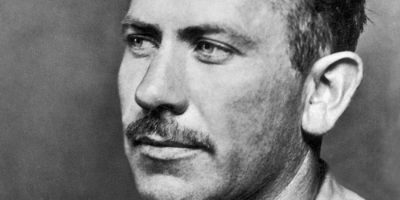
Photo by Wikimedia commons – Wikimedia
10 Most Famous Indian Inventors
India is a county in the Asian continent with a very large population of about 1.38 billion people. With this kind of population figure, there is so much poverty, dependency, and unemployment expected.
India was also a colonized nation by Great Britain. The Indian Independence Act was passed on the 15th of August in the year 1947 thus becoming an independent nation. Since then, they have been developing their status as an independent country by contributing to their economic growth.
The country is trying its level best to create employment through the initialization of industries and educating its subjects. This kind of haste development is being called for as a result of the earlier contributions.
These were done by Indian inventors who came up with theories and ideas, that required to be developed further thus requiring more manpower and formal education knowledge.
The inventions were of different fields like physics, biological inventions like antibiotic production, quantum mechanics, geographical inventions, and others.
Currently, India is ranked amongst the countries with the best hospitals in the world. In addition, they have the best cottage industry that is the main source of employment and income for her subjects.
All this development has been a continuation of what the inventors brought and are bringing to life. Some of the famous inventors in India are as follows.
1. Chandrasekhara Venkata Raman

Photo by Post of India – Wikimedia
Chandrasekhara Venkata Raman was an Indian physicist who was a light scattering expert. He was born on the 7th of November, 1888 in Trichinopoly Madras’ presidency, British India.
He developed a spectrograph which he and his student K. S. Krishnan used to discover that if light transverses through a transparent material the wavelength and frequency of the deflected light change.
This phenomenon was later named after him; Raman scattering. He was awarded the fellow of the royal society award, Nobel Prize in physics in 1930, Lenin peace prize, Bharat Ratna, Matteucci medal, Hughes medal, and Franklin medal.
He died on the 21st of November, 1970.
2. Homi Jehangir Bhabha

Photo by Mondadori Publishers – Wikimedia
Homi Jehangir Bhabha was born on the 30th of October, 1909 in Mumbai India. He was born in a wealthy family that he was enrolled in great educational institutions for his parents could afford.
Physicist, founder-director, and professor of physics at the Tata Institute of fundamental research.
In his field of nuclear physics, he developed the Indian nuclear Programme cascade process of cosmic radiation point particles Bhabha scattering theoretical prediction of Muon.
This invented atomic and nuclear bombs. He received awards like the Adams prize, Fellow of the Royal Society (FRS), and Padma Bhushan.
He died at Mont Blanc in a plane crash of the Air India flight 101 on his way to Geneva on the 24th of January, 1966 at 56 years of age.
3. Sir Mokshagubdam Visvesvaraya
Sir Mokshagubdam Visvesvaraya was born on the 15th of September, 1860 in Muddenahalli India.
The first engineer in India who was a civil engineer, statesman, and the 19th Diwan of Mysore from 1912-1919. He invented the block system where automated doors close the water overflow.
He designed and patented floodgates. M. V. was also the architect of the great Krishna Raja Sagara dam in Mysuru and also designed a river Mussi flood protection system towards Hyderabad city.
He contributed to hydroelectric power projects that evolve to date. He was awarded the Bharat Ratna award in 1955. He died on the 14th of April, 1962.
4. Venkatrama Radhakrishnan
Venkatrama was an Indian scientist and a member of the Royal Swedish academy. He was born in Chennai, India on the 19th of May, 1929.
Medical oncology and pediatric oncology were his area of interest. He is well known for antibiotics production as the invention where with other researchers they used x-ray crystallography to map the structure of ribosomes in 2000.
He was awarded the Nobel Prize for chemistry in 2009, Padma Bhushan, Louis-Jeantet prize for medicine among other awards.
5. Satyendra Nath Bose

Photo by Wikimedia commons – Wikimedia
Nath Bose was born on the 1st of January, 1894 in Kolkata India. He was a mathematician and physics theoretical specialist.
In collaboration with Albert Einstein, they came up with quantum mechanics in the early 1920s. The mechanics gave birth to Bose-Einstein condensate and Bose-Einstein statistics.
The Bose-Einstein statistics was a theory development regarding the gas-like qualities of electromagnetic radiation.
Bose was awarded the Fellow of the royal society award and Padma Vibhushan. He died on the 4th of February, 1974.
6. Meghnad Saha

Photo by Wikimedia commons – Wikimedia
Meghnad Saha was born in Bangladesh on the 6th of October, 1893.
He was an astrophysicist and used to describe chemical and physical conditions in stars through which astronomers were able to relate the spectral classes of stars.
His innovation on the thermal ionization equation in 1920 related to the elements ionization state to temperature and pressure. He was awarded the Fellow of the Royal Society award.
7. Srinivasa Ramanujan

Photo by Konrad Jacobs – Wikimedia
Srinivasa Ramanujan was a mathematician who lived during British rule in India. He was born on the 22nd of December, 1887 in Erode India.
However, he had very little formal training in mathematics. He is considered an intuitive mathematical genius.
He influenced several mathematical areas with the major ones being the contribution to number theory and infinite series as well as the fascinating formulas that can be used to calculate digits in unusual ways.
Later, he developed the Landau-Ramanujan constant mock theta function, Ramanujan-Sato series, among others.
His achievement awarded the fellow of the royal society award. He died on the 26th of April, 1920 in Kumbakonam.
8. Vikram Ambalal Sarabhai

Photo by Nathan Hughes Hamilton – Wikimedia
Vikram Ambalal Sarabhai was born on the 12th of August, 1919.
He was a physicist and astronomer. During his works, he initiated space research and helped develop nuclear power in India.
Sarabhai is regarded as the founding father of the Indian Space Program. He was awarded the Padma Bhushan and Padma Vibhushan awards. He died on the 30th of December, 1971.
9. Jagadish Chandra Bose
Jagadis Bose was born on the 30th of November, 1858. He was a biologist, physicist, botanist, and early writer of science fiction.
He is well known for his development of millimeter waves, radio, Crescograph, crystal radio, contribution to plant biology, and crystal detectors.
Bose also proved that plants have a definite life cycle, a reproductive and are aware of their surrounding.
He had acquired awards like the order of the Indian empire, the order of the star of India, and the knight bachelor. He died on the 23rd of November, 1937.
10. Subrahmanyan Chandrasekhar
Subrahmanyan Chandrasekhar was an Indian American mathematician and astrophysicist. He was born on the 19th of October, 1910 in Lahore Pakistan but spent his professional life in America. He discovered that massive stars can collapse under their own gravity to reach enormous or even infinite densities. He shared a Nobel Prize in physics with William A. Fowler as a result of his theoretical study of the physical processes of importance to the structure and evolution of the stars. He was awarded other awards like the fellow of the royal society, Copey medal among others. He died on the 21st of August, 1995 in Chicago, United States.
Concerning the discussed inventors above, it is seen that the Indian inventors were majoring in scientific invention from medical to engineering and mathematical aspects.
This has led to the growth of the country as well as the universe more so the world of engineering, medicine, and mathematics.
Today, India is one of the countries with the best medical services depended on worldwide. All these inventions have created job opportunities directly or indirectly.
Planning a trip to Paris ? Get ready !
These are Amazon’s best-selling travel products that you may need for coming to Paris.
Bookstore
- The best travel book : Rick Steves – Paris 2023 – Learn more here
- Fodor’s Paris 2024 – Learn more here
Travel Gear
- Venture Pal Lightweight Backpack – Learn more here
- Samsonite Winfield 2 28″ Luggage – Learn more here
- Swig Savvy’s Stainless Steel Insulated Water Bottle – Learn more here
Check Amazon’s best-seller list for the most popular travel accessories. We sometimes read this list just to find out what new travel products people are buying.










